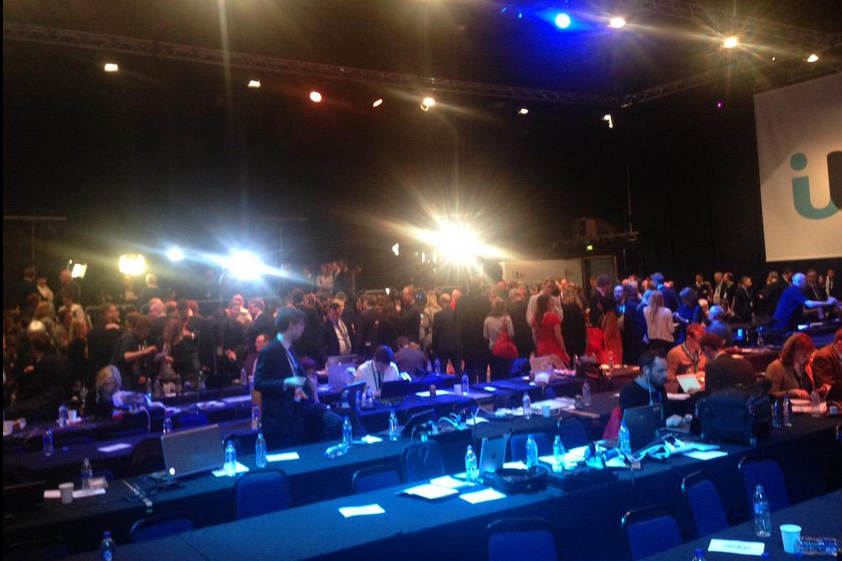Tonight’s ‘Question Time’-style TV debates will be followed by what has become probably the most hated aspect of this rather uninspiring general election campaign: the spin room.
This spectacle of journalists interviewing journalists as they listen to frontbenchers from all the parties parroting lines about how their leader was the best (or, in the Tory case, how well Nicola Sturgeon has been doing) is odd enough inside the room, let alone for those watching at home. The way the politicians spinning talk is even less natural than usual: it’s like a Westminster version of Made In Chelsea, stuffed with people acting at being actors.
And yet there is a reason why hacks travel across the country to sit in a completely different room to the debate and watch it on a big screen. It’s not just the access to well-known politicians, or perhaps a herd mentality. It’s also that in the spin room we see quite clearly how the parties plan to attack one another and how they want to talk about themselves.
Because we know that everything is scripted, we are not listening to the ministers and spinners in order to be persuaded, but to see what it is their party will likely spend the next few days at least saying. So it is significant that the Tories wanted to talk about the success of Nicola Sturgeon. Labourites were keen to talk up the personal performance of Ed Miliband, while the Lib Dems tried to argue that Nick Clegg had maintained an equidistance between Labour and the Tories in his attacks on each party. It is a textual analysis, rather than a debate.
There are of course lots of other ways in which hacks could pick up these lines. And the very concept of the spin room upsets a lot of people who feel that politics has become about lines to take, not moral missions to pursue. So this is only a partial defence of the spin room. But given politics is where it is, at least the people trying to report on what is going on need to work out what the parties are trying to get up to.







Comments